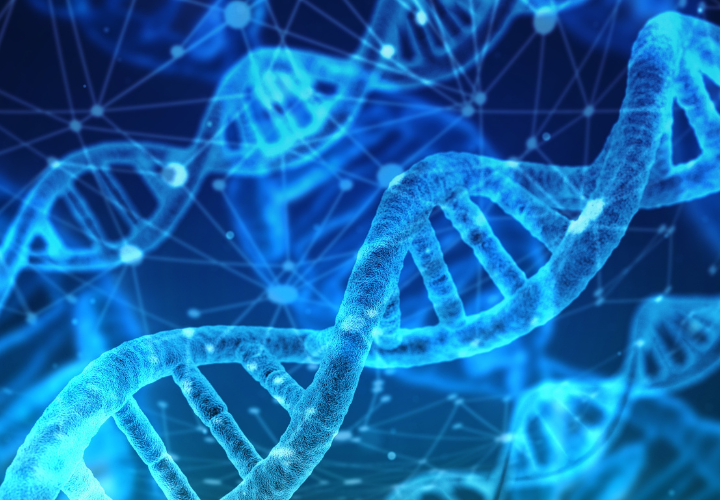First baby receives life-saving gene therapy on NHS
16 Feb 2023
A 19-month-old baby girl called Teddi has become the first child in the UK to receive a life-saving gene therapy treatment for a fatal disorder. Doctors caring for Teddi and her sister suspected the children were affected by metachromatic leukodystrophy (MLD).
The diagnosis was provided by by a rapid gene test delivered by the NHS South West Genomic Laboratory, part of the national NHS Genomic Medicine Service. It resulted in Teddi getting treatment via a pioneering stem cell therapy means she is now a happy, healthy toddler, with no signs of the devastating disease she was born with.
Led by the Royal Devon University Healthcare NHS Foundation Trust, the new pioneering rapid whole genome sequencing service has been developed in collaboration with the world-leading genomics research groups at the University of Exeter, alongside clinicians and academics worldwide.
The service rapidly processes DNA samples of babies and children who are born or end up seriously ill in hospital and are suspected to be affected with a rare condition. Whole genome sequencing can look at all the 20,000 genes in the child’s sample to identify a genetic change that is causing the illness.
From a simple blood test, the Exeter team are able to provide diagnosed for clinicians from across the country within just 7-10 days – meaning they can start treatment straight away, saving lives and opening up the possibility for thousands more patients to have their condition better treated or even cured completely.
The diagnosis meant Teddi was able to receive a revolutionary gene therapy, known by its brand name Libmeldy®. It has a list price of £2.8million and was the most expensive drug in the world when NHS England negotiated a significant confidential discount last year to make the treatment available to NHS patients – it remains the most expensive drug licensed in Europe.
“It is so for rewarding to see the advances in genomic medicine translate into life-saving treatments for children like Teddi. The NHS Genomic Medicine Service is a world-first, designed to ensure the best possible outcomes for children like Teddi. The Exeter laboratory are committed to continuing to harness new and emerging technologies to improve lives for thousands of children with rare genetic diseases into the future.
Emma Baple, Professor of Genomic Medicine at the University of Exeter, and Medical Director of the NHS South West Genomic Laboratory Hub, part of the NHS England Genomic Medicine Service
The genetic disease causes severe damage to the affected child’s nervous system and organs, resulting in a life expectancy of between just five and eight years.
The treatment is available on the NHS as a specialist service. It is being delivered within Royal Manchester Children’s Hospital – in collaboration with Manchester’s Centre for Genomic Medicine at Saint Mary’s Hospital – both part of Manchester University NHS Foundation Trust (MFT).
The life-saving gene therapy works by removing the child’s stem cells and replacing the faulty gene that causes MLD before re-injecting the treated cells into the patient.
Teddi was the first person in the UK to receive the treatment outside of a clinical trial, which began when she was 12 months old with the removal of stem cells at the end of June, which were then treated before the transplant took place in August and Teddi was discharged back to her home in Northumberland in October.
Teddi and Nala’s mother, Ally Shaw, 32, said: “In April last year, our world was turned upside down when not one, but both of our daughters were diagnosed with MLD. Being told our first daughter, Nala, wasn’t eligible for any treatment, would continue to lose all functions, and die extremely young was the most heart-breaking and hardest thing to come to terms with.
“However, amongst the pain, was hope for our younger daughter, Teddi. We were told that a new gene therapy treatment had, luckily, recently been made available on the NHS.
“We are extremely privileged that Teddi is the first child to receive this on the NHS and grateful that she has the opportunity to lead a long and hopefully normal life. Without this treatment, we would be facing both our children being taken away.”
“Teddi is doing absolutely brilliant! She is walking, running, a chatterbox, absolutely no signs so far of MLD. She is an absolute character and has everyone around her laughing all the time.”

